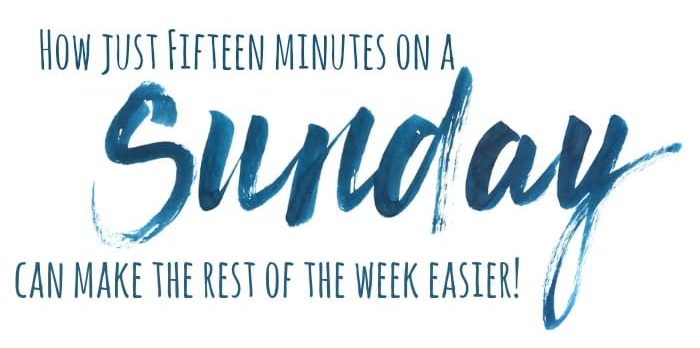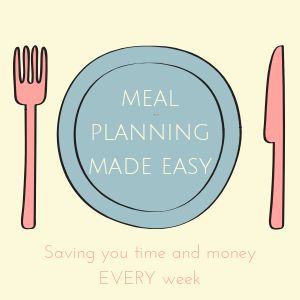
After my post earlier today, I realised that if any of you were struggling with your finances at this time of year to the point that you’re considering taking out a payday loan then you might appreciate a little bit of reassurance that no matter how bad things are, there’s nothing that can’t be fixed.
First of all, take half an hour with a cup of tea and a digestive biscuit and work out what your monthly budget is using my free budget planner, making sure that you are TOTALLY honest with yourself. If you don’t include everything then the only person it’s going to affect as your monthly budget won’t be a true reflection of your financial situation.
There are a couple of possible outcomes after you’ve completed your monthly budget. The first is that, on paper at least, you seem to have enough money coming in to cover your outgoings and the second is that, unfortunately, you don’t have enough money each month to cover everything you need to pay.
Let’s look at the first scenario first – your monthly budget is showing that you have enough money coming in to cover everything that’s going out. Seeing as you’re reading this post right now, I’m guessing that’s not the case and that you’re finding that you run out of money before payday comes around.
If this is you then you need to make changes quickly before things spiral. These are the three things I would recommend you consider doing straight away….
- Go through your bank statement and cancel any non urgent Direct Debits like subscriptions and memberships (be careful that you won’t incur further charges by doing this). This will free up some money straight away as it won’t be going out of the bank this month.
- Stop spending! I don’t mean completely but I do mean stop buying anything that is non-essential and start a spending log of everything you do spend so you can see where your money is actually going to each month. I was really surprised at how much the odd bits and bobs added up to when I did this.
- Are there any Christmas presents that you’ve bought that you can take back? That’s an awful thing to suggest I know but equally, I look at the presents I’ve bought and know that if I was struggling then I could take at least a couple back and replace them with cheaper ones.
- Read this post about how to make some money and see if you can make a few extra pounds because if you can make some money to top your bank account up then you can start next year on a good footing.
If you have time before Christmas then I would recommend going through your bank statement and checking that you have the best deal for absolutely EVERYTHING you are paying for (using comparison AND cashback websites). I appreciate that this takes time so you might prefer to leave this until after Christmas but do bear in mind that the sooner you do it, the sooner you start saving.
You could also do with having a look at this post which includes 50+ ways to save money. I’d start working through it with a pen and paper and see what ideas you can implement so that you can start saving money. There’s also this post which is 50 ways to save money at Christmas Fifty Ways to have a frugal but fun Christmas which might be especially helpful at this time of year.
I’ve also made a financial planner that might help you for next year as it helps you keep track of everything from spending to saving and from your meal planning to no spend days as well as any mini goals you might like to set yourself through the year. You can see the planner here if you fancy having a look. 😉
These ideas will help you if you know that you should have enough money in the bank to cover your outgoings, but what if your budget is telling you that you don’t have enough coming in? That’s a little harder to deal with than the first scenario but still can be done and when it is, you’ll feel a weight lift right off your shoulders. Honest.
It’s easier to lower your outgoings that it is to increase your incomings so I’d start by doing everything that I’ve suggested above, but with a bit more urgency and with a slightly different approach. Anything non-essential should go at this point and you should definitely be making sure you’re on the best deal possible for everything you pay for.
In the short term, you can contact your gas and electricity suppliers and they will often let you miss a payment and spread it over the next few months with no impact. If you pay your council tax over ten months then you may be able to miss a payment and spread the amount over 12 months and not 10 with no adverse affect on you at all.
Once you’ve reduced everything as low as you can and you have looked at the how to make money post to see if you can do anything on there to top up your monthly earnings then re-do your monthly budget. Does it look any better? If it does then you’ve done brilliantly and you can start the New Year knowing you just have to work hard to control your spending (I know a good Financial Planner to keep you on track ha ha).

If it still shows that you are struggling then it’s time to ask for help. You really don’t have to do this alone and there are options out there for you no matter how impossible it seems – just don’t ignore it and hope for it to get better on it’s own because short of a lottery win or a miracle, it won’t!
I’m not a financial advisor but my best advice would be to cut back wherever you can and make sure all of your essential debts are paid – things like mortgage, utilities and council tax would be what I would class essential debts as being.
I would deal with any outstanding debts such as loans, credit cards, hire purchase and finance agreements by contacting the companies directly to ask them what they can do to help me as far as a repayment plan is concerned. I’d also consider what the amount outstanding is and whether an IVA or similar would help me. Companies like Creditfix can do this on your behalf with the added benefit of the fact that, once the companies have the relevant documentation, they will correspond with you through Creditfix which is another weight off your mind if you dread the phone going in case it’s about an overdue payment.
Citizens Advice Bureau – Advice on all financial matters (bear in mind they are very busy at this time of year).
Stepchange – Advice on all financial matters.
Creditfix – individual voluntary arrangement help as well as other debt advice and help.
Stepchange Money Aware – help with budgeting and saving advice.
Don’t miss out on future posts like this – receive updates directly to your inbox by email by adding your email address to the box on the top right of this page and hitting subscribe. You can also find me on BlogLovin, Yummly and Networked Blogs and I’d love to see you over on my Facebook page and on Instagram.

This is a collaberative post.








